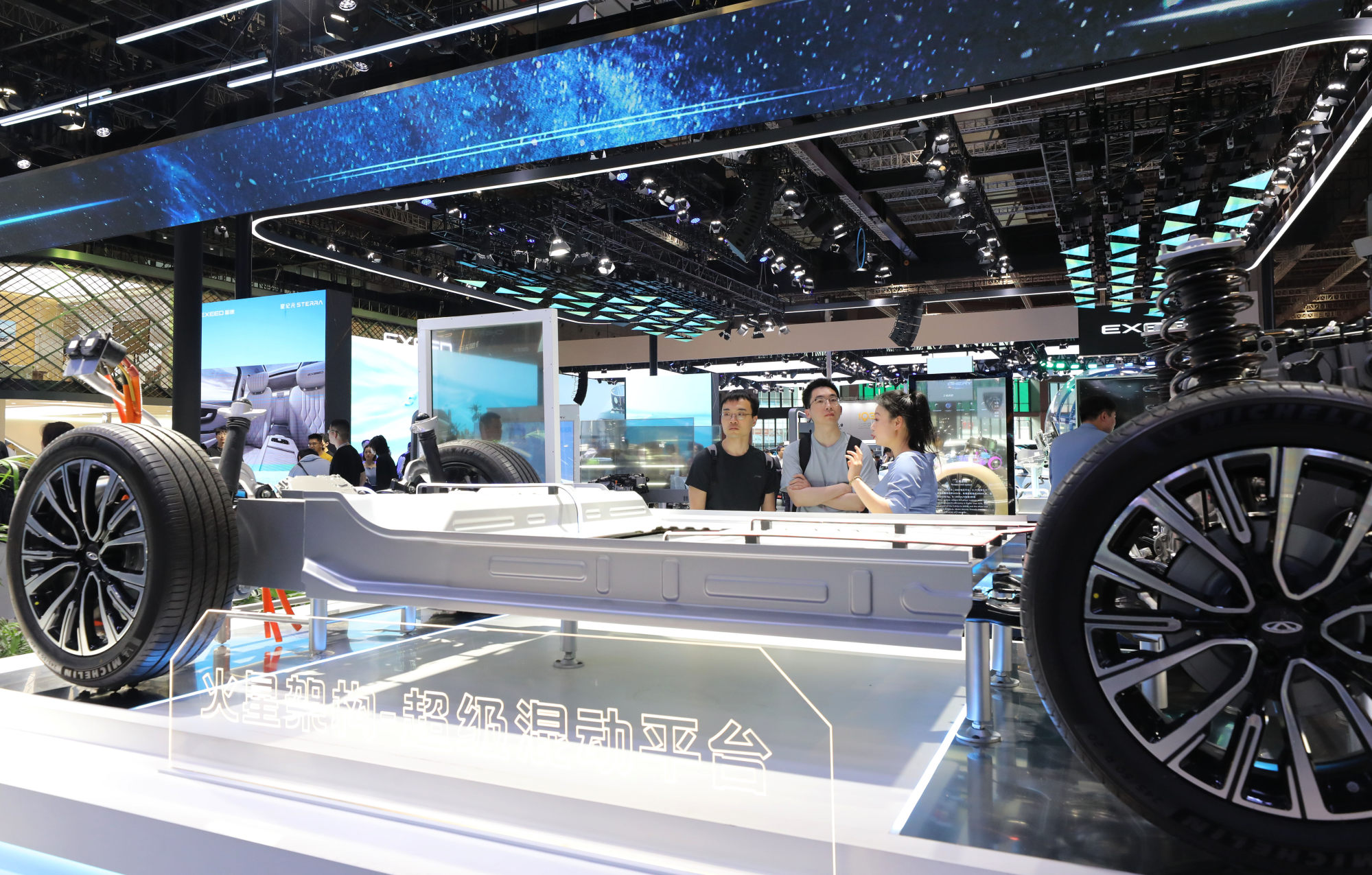
Exclusive | Shanghai Auto Show: Chery Automobile’s Jetour unit targets 50 per cent sales outside China by 2027
- Jetour plans to sell half of its total production of 1.2 million units in 2027 in overseas markets, general manager Li Xueyong said
- Chery’s subsidiary, which currently has a presence in 35 countries, plans to enter 10 more markets this year and set up two more plants abroad
Jetour, which mainly develops sport-utility vehicles (SUVs), expects sales of 600,000 units in overseas markets in 2027, said general manager Li Xueyong.
Founded in 2018 to tap the accelerated electrification drive in China, Jetour delivered more than 180,000 units in 2022, an increase of 17 per cent year on year.

It is targeting overall sales of 400,000 units this year, with at least 120,000 outside China, Li said.
Li, who is also a vice-president at state-owned Chery, based in eastern China’s Anhui province, said Jetour hopes to sustain a high level of growth to achieve its goal of delivering half of the 1.2 million units in 2027, using its parent’s manufacturing facilities, sales network and image.
It’s curtains for China’s underachieving EV start-ups as they skip Shanghai show
From 2027 onwards, Jetour’s overseas sales will account for half of its total deliveries, Li added. “We are laying out a growth plan for the international markets, rather than just the Chinese market.”
The company currently has a presence in 35 countries, particularly in South America, Africa and the Middle East.
It will make a foray into another 10 countries this year, including the European markets of Italy and Turkey, according to Jacky Chen, head of Jetour’s international business.
Chen said Jetour would develop both left-hand drive and right-hand drive models to expand its global footprint. Jetour, which has three production bases abroad, including one in Germany, has plans to set up another two overseas plants this year, he added.
“Jetour has set lofty sales goals and they reflect the carmaker’s ambitions of vying for a global market share,” said Chen Jinzhu, CEO of consultancy Shanghai Mingliang Auto Service. “It is the best example of China’s increasing manufacturing might in the automotive industry.”

Jetour is developing more than a dozen new models, which are likely to hit the market in the next two years. These include six to seven urban SUVs, three to four off-road vehicles and two pickups.
General manager Li said some of Jetour’s SUVs with intelligent features allow the cars to travel in convoys provided they are travelling to the same destination, adding that the technologies used in Chinese-made EVs were superior to their European-made counterparts.
“Chinese consumers’ vast demand for EVs benefits domestic carmakers in developing products with an edge [over international rivals] in quality and technologies,” said Gong. “The long-term outlook of the industry is bright.”

